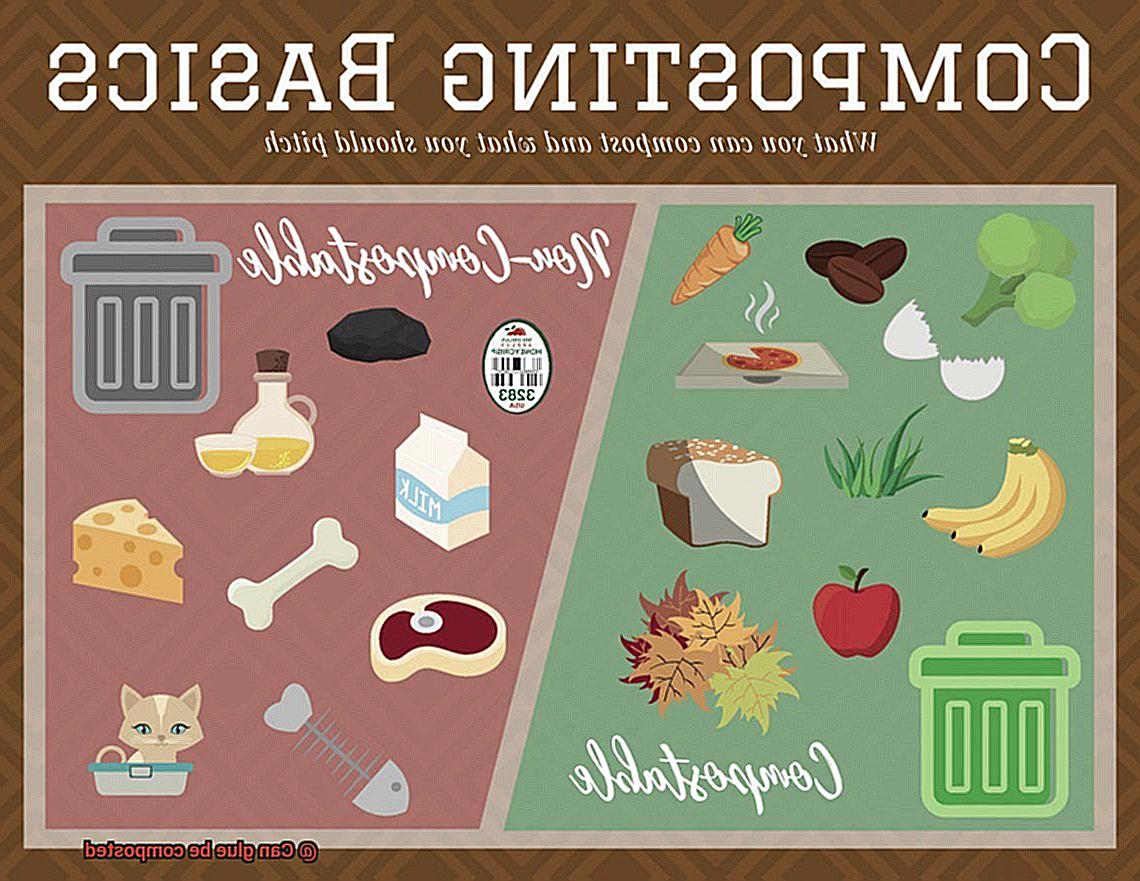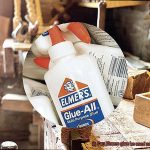Today, we’re tackling a mind-boggling question that might have you scratching your head: can glue really be composted? We all know glue is our trusty sidekick for crafts and fixes, but who would’ve thought it could go green? As we navigate the wild world of sustainable living, it’s crucial to understand how every little thing we use can find its way into the compost bin. That includes even the most unexpected items like glue.
In this blog post, we’ll dive deep into the fascinating realm of composting and see if it’s a match made in heaven for our sticky friend. Prepare yourself for some serious adhesive enlightenment.
The Composition of Glue
Contents
Glue is a versatile adhesive that we often rely on for arts and crafts, repairs, and various other applications. But have you ever wondered about the composition of glue and whether it can be composted? In this article, we’ll explore the fascinating world of glue, uncover its ingredients, and dive into its compostability. So let’s delve into the sticky truth.
The Composition of Glue:
Glue is primarily composed of polymers, which are large molecules made up of repeating smaller units called monomers. Different types of glue utilize different polymers, such as polyvinyl acetate (PVA) or cyanoacrylate. These polymers give glue its remarkable adhesive properties, allowing it to bond surfaces together with strength.
In addition to polymers, glues also contain additives that enhance their performance. These additives include plasticizers, stabilizers, fillers, and preservatives. Plasticizers increase the flexibility and durability of the glue, while stabilizers prevent its deterioration over time. Fillers improve the viscosity and strength of the glue, while preservatives inhibit the growth of mold or bacteria.
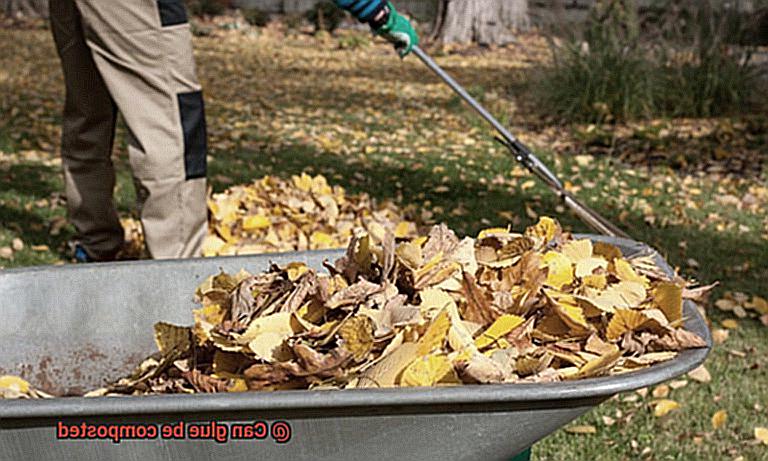
Compostability of Glue:
Now let’s tackle the burning question: can glue be composted? Well, it all boils down to the composition. Natural glues made from organic sources, such as animal-based products like hide or bone, tend to be more compostable. These glues can be broken down by microorganisms in composting environments, returning to nature without leaving a trace.
However, synthetic glues made from petroleum-based polymers usually don’t fare well in composting conditions. These glues are not easily degraded by microorganisms and can persist for long periods of time in natural environments. The synthetic polymers they contain are resistant to decomposition.
Eco-Friendly Alternatives:
Fortunately, as environmental awareness grows, manufacturers are developing eco-friendly alternatives to traditional synthetic glues. Some glues are now derived from renewable resources like starch or cellulose, offering a more sustainable option. These bio-based glues have the potential to be composted, reducing waste and minimizing environmental impact.
Glue and the Composting Process
Glue – the versatile adhesive we rely on for crafts, construction, and woodworking. But have you ever wondered if it can be composted? In this article, we uncover the sticky truth about glue and its role in the composting process.
Understanding Composting Basics:
Before we dive into the world of glue, let’s briefly grasp the concept of composting. It’s a natural process where organic materials break down into nutrient-rich soil amendments. For an item to be composted, it must be biodegradable, meaning microorganisms can break it down.
The Challenge with Glue:
Here’s where glue poses a challenge. Most glues contain synthetic chemicals that microorganisms struggle to break down. This makes composting them difficult. However, there are glues labeled as biodegradable or compostable, indicating that they can break down over time in a composting environment.
Read the Labels:
How can you determine if your glue is suitable for composting? Read the labels and product specifications carefully. If the glue is not labeled as compostable, it’s best to avoid adding it to the compost bin. Non-compostable glue may hinder decomposition or introduce harmful chemicals into the soil.
Alternative Options:
But fear not. There are alternative options for glue that can be safely composted. Natural adhesives like flour paste or homemade glue made from ingredients like cornstarch and water are excellent alternatives. These natural glues are biodegradable and won’t hinder the composting process.
Consider the Composition of Materials:
When using glue on already biodegradable materials like paper or cardboard, its impact on the composting process may not be significant. However, it’s crucial to consider the overall composition of the materials being composted.
Consult Local Guidelines:
As always, consult local composting guidelines and regulations to ensure proper disposal methods for glue and other adhesives. Different regions may have specific rules or recommendations regarding composting glue.
Traditional Glues and Composting
Today, we’re delving deep into the fascinating realm of traditional glues and composting. Have you ever pondered the fate of those trusty animal-based or wood glues in a compost pile? Well, prepare to be enlightened.
Composting is a remarkable process that transforms organic materials into nutrient-rich soil amendments. And yes, traditional glues do have the potential to break down in a compost pile, but it’s not quite as simple as tossing them in.
Let’s begin with animal-based glues like hide glue or bone glue. Derived from natural sources, these glues can be broken down by the microorganisms present in a compost pile. Compared to synthetic glues, they have a higher likelihood of decomposing.
Now, onto wood glues—a trickier subject. These glues often contain synthetic additives that boost their water-resistance and durability. These very additives can impede the decomposition process and make the glue less suitable for composting.
But wait, there’s more. Some traditional glues may harbor chemicals or additives that are not biodegradable or could potentially release harmful substances into the compost pile. Quite the conundrum. To steer clear of any contamination or adverse effects on your composting process, it’s crucial to scrutinize the label or product information to determine if the glue is compost-friendly.
If you find yourself uncertain about a specific glue, it’s best to err on the side of caution and refrain from adding it to your compost pile. Instead, seek out alternative glues specifically labeled as compostable or eco-friendly. These glues are designed to break down under composting conditions and offer a safer option for those keen on composting their glue-related waste.
In conclusion, while some traditional glues may indeed be compostable, it is essential to consider their composition, additives, and potential impact on the composting process. Always opt for glues labeled as compostable or eco-friendly to ensure a successful and ecologically sound composting journey.
Potential Harmful Additives in Glue
While glues are generally considered safe, it is crucial to be aware of the potential harmful additives that could jeopardize our health. In this comprehensive exploration, we will shed light on these additives, unravel their potential risks, and provide guidance on how to make informed choices when using glue.
Formaldehyde: The Silent Carcinogen
One of the most alarming additives found in certain glues is formaldehyde. This colorless gas, classified as a carcinogen by the International Agency for Research on Cancer, can be released into the air during glue usage. Prolonged exposure to formaldehyde can result in respiratory issues and allergic reactions. To safeguard your health, always opt for glues labeled “formaldehyde-free.”
Toluene: A Nerve-Wracking Ingredient
Another concerning additive present in some glues is toluene. This volatile organic compound (VOC) can wreak havoc on the central nervous system. Extended contact with toluene may lead to headaches, dizziness, and damage to vital organs such as the liver and kidneys. Minimize your risk by selecting glues labeled as “low VOC” or exploring alternative adhesives that are free from toluene.
Solvents: More Than Just a Sticky Situation
Glues often contain solvents like acetone or methanol. These solvents can prove harmful if inhaled or ingested, causing irritation to the respiratory system, skin, or eyes. Handle these glues with care and ensure proper ventilation when using them to mitigate any potential harm.
The Dangers of “Super Glue”
If you’re fond of “super glue” or “instant glue,” it is vital to acknowledge the potential risks associated with cyanoacrylate. While cyanoacrylate itself is generally safe, it can emit toxic fumes when exposed to heat or flames. Hence, exercise caution and avoid using these glues near open flames or heat sources.
Composting Conundrum: Glue in Your Pile
For those who embrace composting, the presence of additives in glues can be a cause for concern. While organic materials are typically compostable, glues containing harmful chemicals like formaldehyde or toluene may not break down entirely. This incomplete breakdown may result in the release of these substances into the soil, potentially harming plants and organisms. To err on the side of caution, refrain from composting glues with potentially harmful additives and dispose of them as hazardous waste instead.
Eco-Friendly Glues for Composting
Look no further than eco-friendly glues. These innovative products are designed to be biodegradable and compostable, making them the perfect choice for eco-conscious individuals looking to reduce their environmental impact.
What sets eco-friendly glues apart? They are made from natural ingredients like plant-based resins, vegetable starches, and even natural fibers. By utilizing renewable resources, manufacturers can create glues with a lower environmental footprint. But that’s not all – these glues also steer clear of toxic chemicals commonly found in traditional adhesives. Say goodbye to volatile organic compounds (VOCs) and formaldehyde.
Now let’s dive into composting. Eco-friendly glues are specifically formulated to break down naturally over time. This means you can safely add them to your compost pile or bin without worrying about harming the soil or contaminating your precious plants. As the glue decomposes, it actually releases nutrients into the soil, providing an extra boost to your plants. Talk about a win-win.
However, not all glues labeled as “eco-friendly” are suitable for composting. Some may still contain synthetic additives or chemical compounds that hinder the composting process or contaminate the soil. That’s why it’s crucial to look for certifications from reliable organizations like the Biodegradable Products Institute (BPI) or ASTM D6400.
These certifications ensure that the glue has undergone rigorous testing and meets specific compostability criteria.
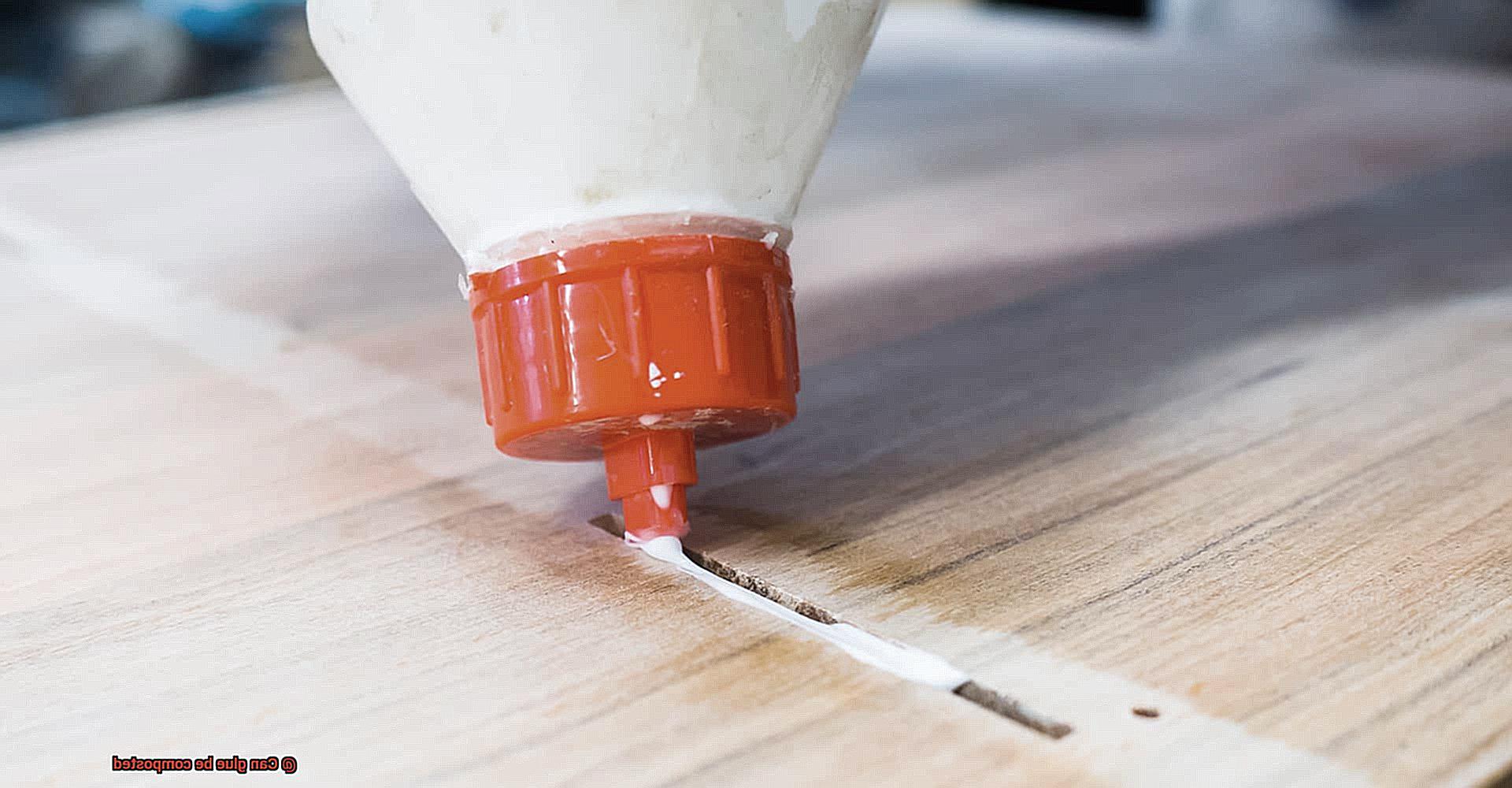
So, next time you’re on the lookout for an adhesive, choose one that’s eco-friendly and certified for composting. By doing so, you’ll be reducing waste, promoting healthy soil, and protecting the environment. Happy composting.
The Benefits of Using Eco-Friendly Glues
Step into the enchanting realm of eco-friendly glues, where nature reigns supreme. These adhesive marvels, crafted from natural and renewable resources, not only offer a safer alternative to conventional glues but also unleash a range of benefits that go far beyond simple adhesion. In this captivating exploration, we will delve into the wonders of eco-friendly glues, from their lower environmental impact to their performance prowess and support for sustainable industries.
Lower Environmental Impact:
Traditional glues, with their toxic ingredients like volatile organic compounds (VOCs), unleash havoc on our environment, polluting the air we breathe and endangering our well-being. Enter eco-friendly glues, crafted from non-toxic elements that reduce the release of harmful substances. By embracing these glues, we can minimize our carbon footprint and safeguard our planet for future generations.
Biodegradability:
Eco-friendly glues possess a remarkable ability to gracefully decompose over time, either through the gentle touch of microbes or exposure to moisture and heat. This means that when disposed of properly, they won’t clog landfills or contribute to long-term waste management issues. By harnessing these glues, we actively participate in creating a sustainable waste management system.
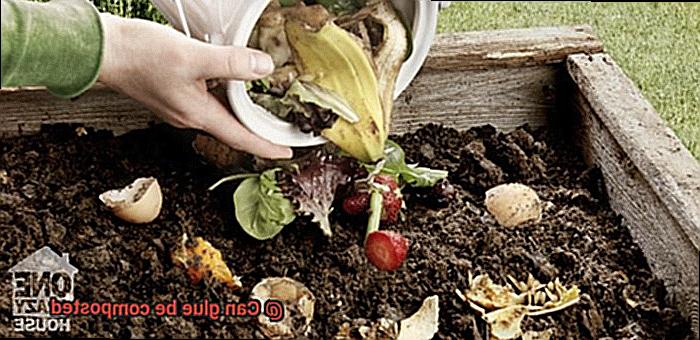
Performance Prowess:
Contrary to popular belief, eco-friendly glues wield formidable adhesion and durability. They masterfully tackle a myriad of applications, from delicate paper crafts to robust woodworking and resilient packaging. With eco-friendly glues in your arsenal, you need not compromise quality while making an environmentally conscious choice.
Support for Sustainable Industries:
Many manufacturers of eco-friendly glues place great emphasis on sourcing materials from sustainably managed forests and implementing environmentally friendly production processes. By supporting these forward-thinking companies, we propel the shift towards a more sustainable and circular economy. Opting for eco-friendly glues means endorsing responsible manufacturing practices.
Personal Values and Lifestyle Choices:
Embracing eco-friendly glues aligns with the values and lifestyle choices of those seeking to minimize their environmental footprint and reduce exposure to harmful substances. It’s a simple step that empowers individuals to contribute to a greener future, leaving a positive impact on the world around them.
What to Look For When Choosing a Compostable Glue
Whether for crafts or repairs, composting your adhesive can make a positive impact. In this article, we will explore what to look for when selecting a compostable glue, ensuring that you stick with eco-friendly adhesion.
Heading 1: Biodegradable Ingredients for a Greener Planet.
When choosing a compostable glue, it is vital to check the ingredients. Opt for glues made from renewable resources like cornstarch or soy, as these natural materials break down easily in compost and have minimal impact on the environment. Say goodbye to synthetic chemicals and petroleum-based glues that persist in your compost pile for ages.
Heading 2: Certified Compostable, Certified Cool.
Certifications are like badges of honor for compostable glues. Look for labels or certifications such as ASTM D6400 or EN 13432 to ensure the glue meets specific criteria for compostability. These certifications guarantee that the glue will break down within a certain timeframe and leave no toxic residue behind. It’s like having a green seal of approval.
Heading 3: Powerful Bonding, Eco-Friendly Style.
A good compostable glue should possess adhesive strength while remaining mindful of the environment. Ensure it can effectively bond the materials you plan to use without compromising its compostability. Some glues may have limitations, so choose one suitable for your unique project. Finding the perfect balance between stickiness and sustainability is key.
Heading 4: Packaging Matters, Waste Shatters.
The packaging of your compostable glue can make a significant difference too. Look for glues that come in eco-friendly packaging such as recyclable or biodegradable containers. This reduces waste and ensures that every part of the product, including its packaging, can be composted after use. Let’s keep our planet free from unnecessary waste.
Heading 5: Consider Your Application, Glue with Dedication.
Different applications may require different types of compostable glue. If you plan to use it outdoors for gardening or horticulture, choose a glue specifically formulated to withstand moisture and temperature fluctuations. Match your glue’s properties to the task at hand, and you’ll have adhesive success while being kind to the environment.
txdmzzfVJJk” >
Conclusion
In conclusion, the compostability of glue hinges on its composition. Glues crafted from natural, organic sources like hide or bone are more likely to break down in composting environments. These glues gracefully surrender to the power of microorganisms, returning to nature with nary a trace left behind. Conversely, synthetic glues born from petroleum-based polymers tend to struggle in composting conditions. They stubbornly resist degradation by microorganisms and can persist in our natural world for what feels like an eternity.
But fear not. As our environmental consciousness expands, manufacturers are working diligently to create eco-friendly alternatives to traditional synthetic glues. Enter bio-based glues derived from renewable resources like starch or cellulose—these sustainable champions have the potential to be composted, reducing waste and minimizing our impact on the environment.
When determining if a particular glue can be composted, it’s crucial to carefully peruse labels and product specifications. If the glue lacks the coveted “compostable” or “biodegradable” designation, it’s best to steer clear of adding it to your compost bin. Non-compostable glue may impede decomposition or introduce harmful chemicals into the sacred soil.
Ultimately, selecting eco-friendly glues labeled as compostable or certified by reputable organizations ensures a triumphant and ecologically sound composting journey. By embracing these environmentally conscious options, we can shrink waste, cultivate thriving soil, and safeguard our planet for generations yet unborn.

